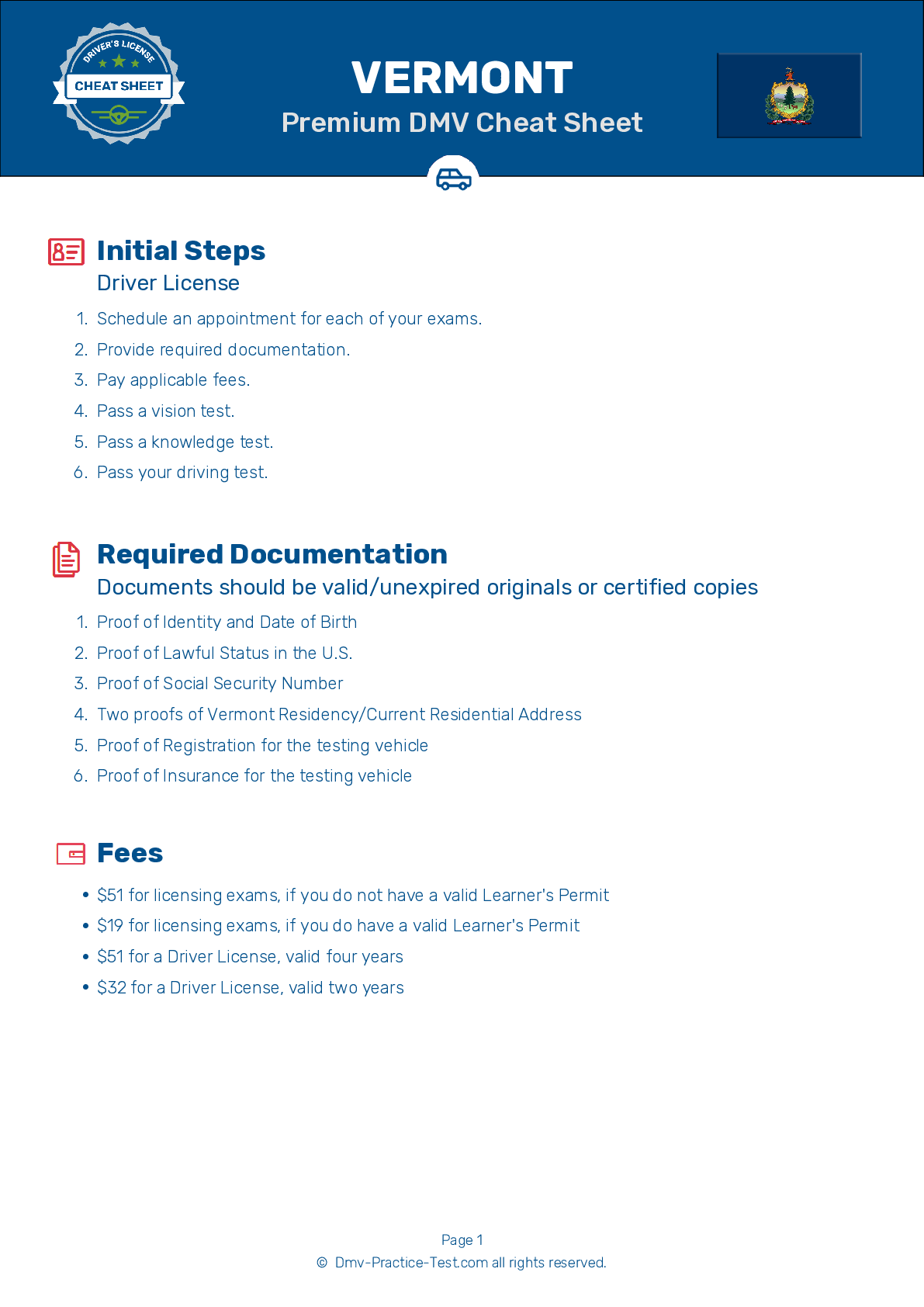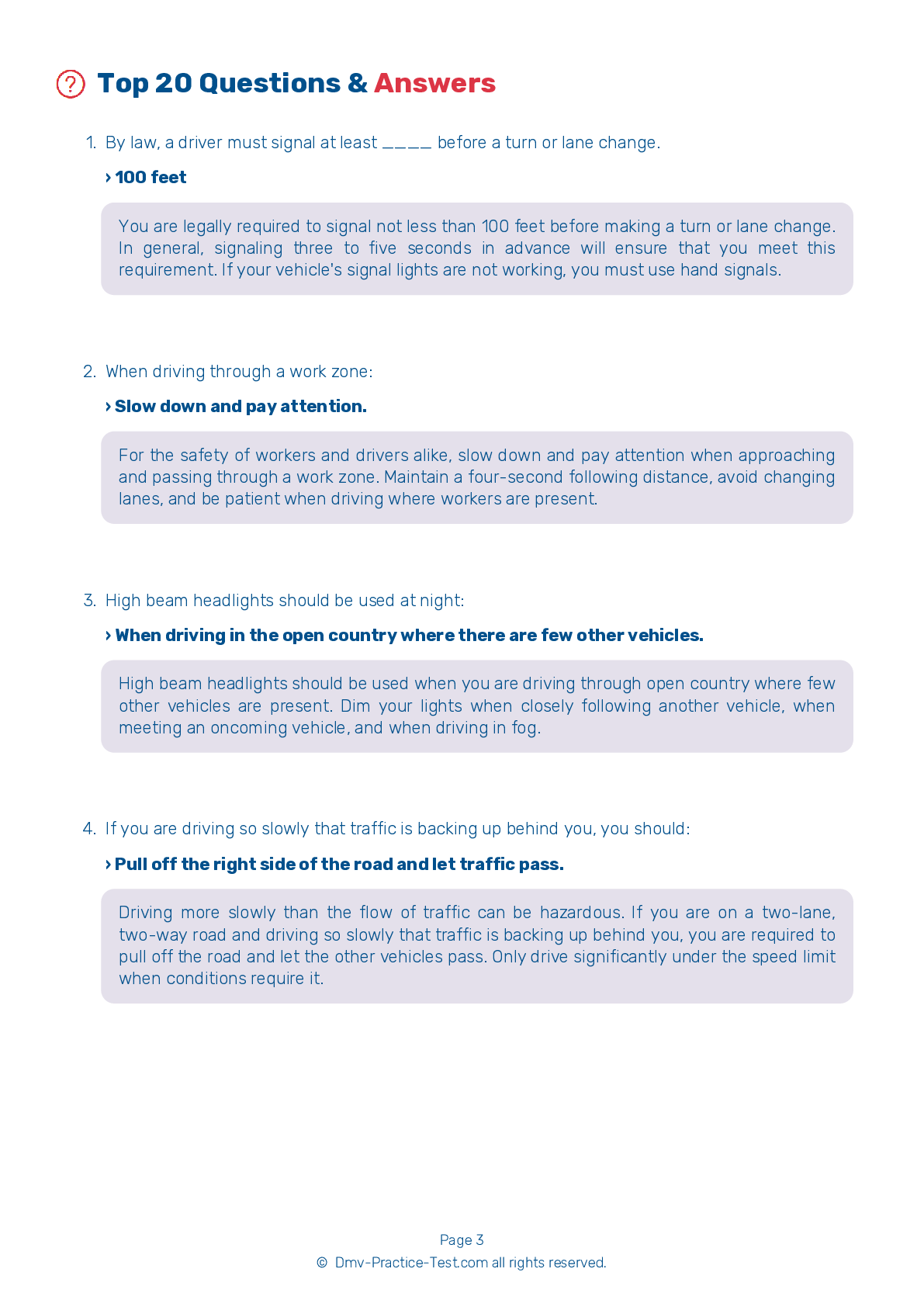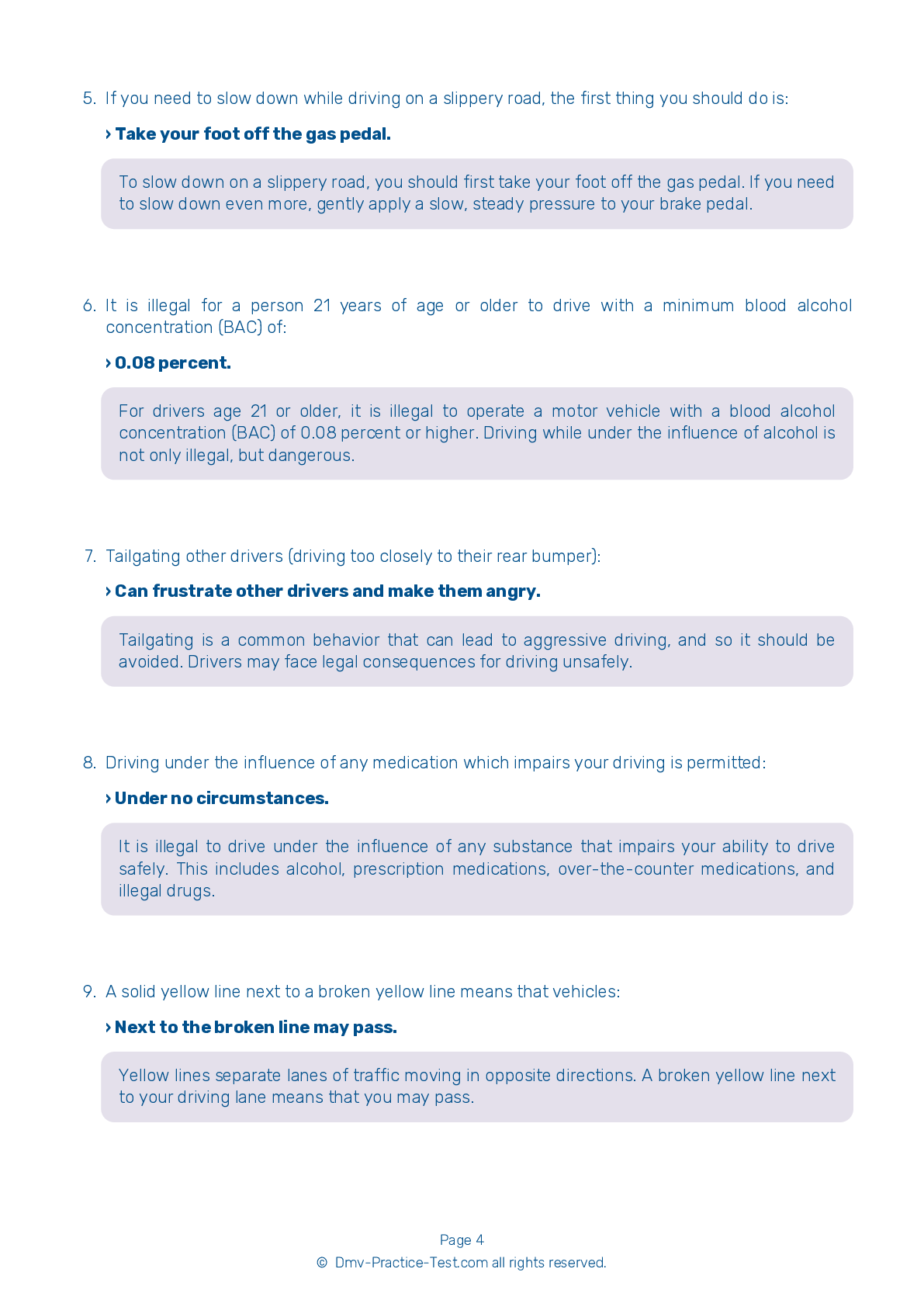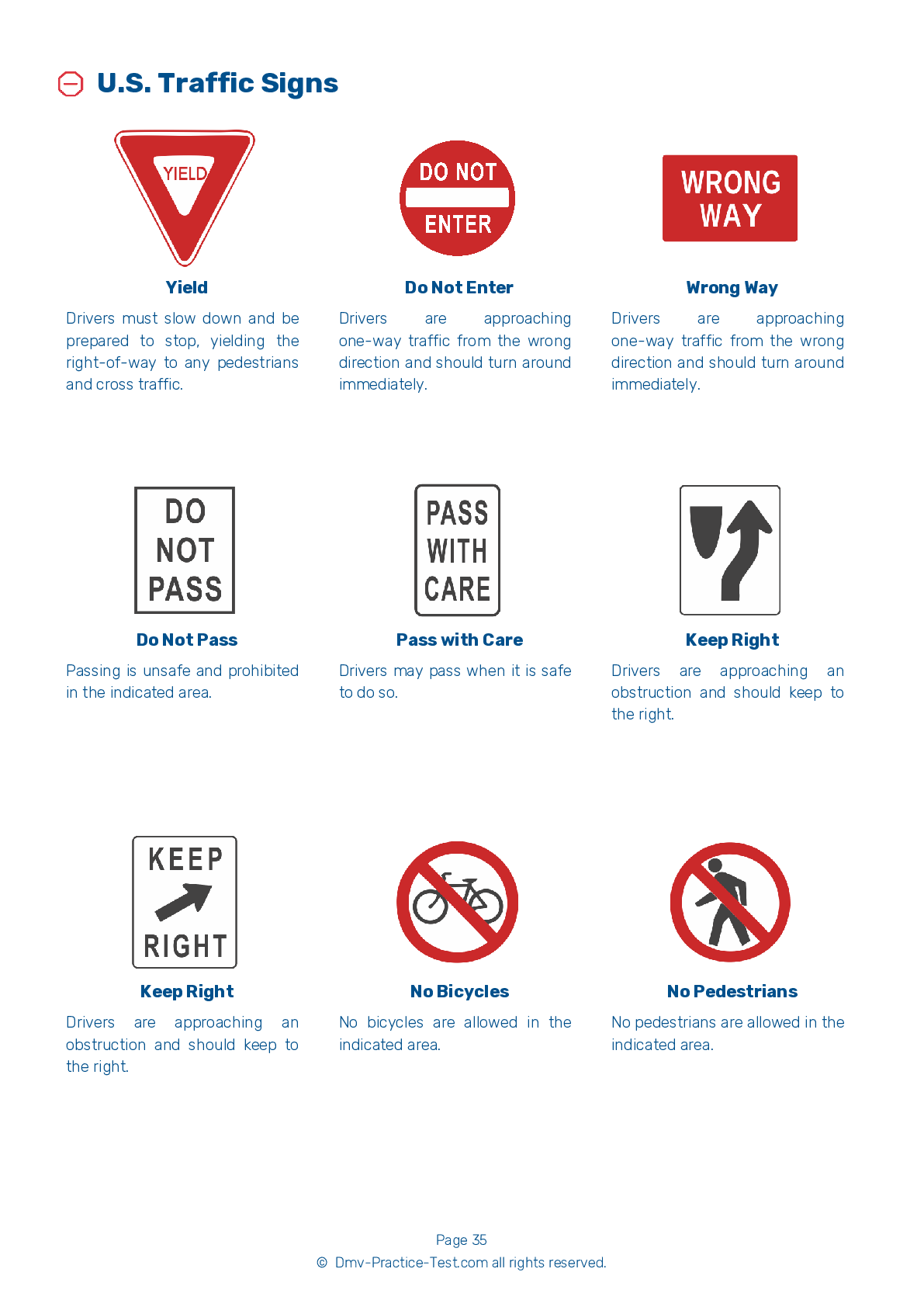FREE Vermont DMV Practice Test #16
The Vermont DMV practise examinations have been updated for January 2025. It includes questions based on the Vermont Driver Handbook's most significant traffic signals and legislation for 2025. Use actual questions that are very similar (often identical!) to the DMV driving permit test and driver's licence exam to study for the DMV driving permit test and driver's licence exam.
On the practise exam, each question gets a tip and explanation to help you remember the concepts. The written component of the official Vermont DMV test will include questions about traffic rules, traffic signs, and driving statutes, as well as knowledge from the Driver Handbook.
To obtain a passing grade, you must correctly answer 16 of the 20 questions. Use the practise exam provided by the Vermont Department of Motor Vehicles to help you prepare for your instruction permit or driver's licence.
The DMV exam is available in several languages.
Using any kind of testing assistance will result in an automatic fail, and the DMV may take additional action against your driver's licence, so stay away from it.
1 . Drivers who have consumed alcohol before getting behind the wheel:
Alcohol is a depressant that negatively affects judgment, vision, concentration, understanding of reality, and reaction time. It is never safe to consume alcohol in any amount before getting behind the wheel of a car.
2 . When driving through a work zone:
For the safety of workers and drivers alike, slow down and pay attention when approaching and passing through a work zone. Maintain a four-second following distance, avoid changing lanes, and be patient when driving where workers are present.
3 . A steady green light at an intersection means that you:
A steady green light means you may drive through the intersection if the road is clear. You may also turn right or left on a steady green light unless a sign prohibits the turn. When turning, you must yield to other vehicles and pedestrians within the intersection.
4 . When passing a large vehicle, the driver of a small vehicle must be prepared for:
Large vehicles can cause wind gusts with a force great enough to cause direction changes in smaller vehicles. Drivers of small vehicles should be prepared to take proper corrective steering action when approaching or passing large vehicles that are moving at or near maximum speeds.
5 . Parking lights should be used:
Parking lights are only to be used when your vehicle is parked.
6 . Your tire blows out while you are driving. You should:
If you experience a tire blowout, do not immediately apply the brakes. Grip the steering wheel firmly and steer to remain in your traffic lane. Reduce your speed gradually by releasing the accelerator and staying off the brakes. Once you are moving very slowly, apply the brakes lightly and pull off the road into a safe area.
2025 Vermont | Frequently Asked Questions
1. Not checking mirrors and blind spots before changing lanes or turning.
2. Speeding or driving too slowly for the conditions or posted speed limit.
3. Not coming to a complete stop at stop signs or red lights.
4. Incorrect signalling or not signalling at all.
5. Poor parking, especially parallel parking.
Remember, practice makes perfect, so take time to hone your skills.



